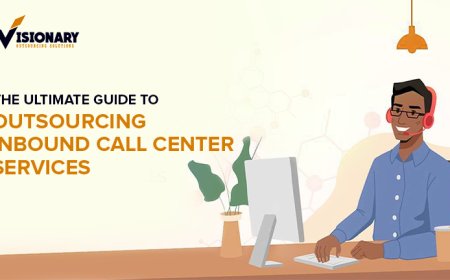How to Launch an AI Agent Service Business: Strategy, Tools, and Go-to-Market Blueprint
Launch an AI agent service business with our practical guide for tech entrepreneurs. Learn strategies, tools, and a go-to-market blueprint to build, deploy, and scale intelligent solutions in 2025.

The rise of artificial intelligence (AI) has presented unprecedented chances for entrepreneurs to create innovative businesses around AI agent services. These autonomous systems may be defined as AI capable systems that can automate some operations, improve customer experience, or improve efficiency; making them valuable in a number of industries. For founders and technology entrepreneurs, starting an AI agent service business requires a clear strategy, the correct tools available, and a strong go-to-market (GTM) plan. This operational guide will clarify the main steps when building and scaling an AI agent service business in 2025.
Understanding AI Agents and Their Market Potential
The AI agent may be defined as an intelligent computer software system that can perceive its environment, reason, and then execute actions on its own in order to achieve a limited defined set of goals. Most impactful AI agent technologies will put way points on traditional automation tools to enable a new operational maker.
AI agents will be able to use traditional methods like supervised/unsupervised Machine Learning (ML) or Advanced natural language processing (NLP), RPA and Predictive analytics to gather information, but they can also change their solution approaches. They can perform customer support, sales automation, data analysis, etc; as an example they are versatile in a business or organizational setting.
The AI agent market is projected to grow at an accelerated pace due to the rapid adoption of AI Technologies in strategic sectors (e.g e-commerce, healthcare, and finance) etc. Entrepreneurs are seizing this opportunity by offering AI agent development services, delivering tailored solutions as standalone products or integrated services that meet specific industry needs.
Step 1: Define Your Niche and Value Proposition
Identify a Specific Problem
The first step to launching a successful AI agents service business is to find a concrete business problem your AI agent will solve. Ask yourself whether you want to build an agent to improve customer service, support inventory management or generate leads. A more focused use case allows you to assess how your AI solution can relieve real-life challenges for your customers and thus enhance its commercial viability.
Choose a Target Industry
Then, consider selecting a specific industry, such as retail, health care, or real estate. This allows you to narrowly focus your agent to specific challenges such as automating patient triage for a health care agent or providing personalized shopping recommendations for a retail agent.
Craft a Compelling Value Proposition
Next, decide on your value proposition. You will want to provide metrics about how your AI agent is saving time or money or making issues that require more human expertise less important. For example, "Reduce customer service response time 30% with our AI-enabled support agent." This is clear and can be measured.
Step 2: Assemble the Right Team and Skills
Core Roles
Building an AI agent requires a multidisciplinary team, including:
-
Machine Learning Engineers: To develop and train AI models.
-
Software Developers: To integrate the agent into existing systems.
-
Data Scientists: To ensure high-quality, unbiased data for training.
-
UX Designers: To create intuitive user interfaces for seamless interaction.
If in-house expertise is limited, consider outsourcing to fill skill gaps or partnering with freelancers experienced in AI development.
Upskilling and Collaboration
Invest in AI training for your team to stay updated on emerging tools and techniques. Foster cross-departmental collaboration to align the agents functionality with business goals, ensuring it delivers measurable value.
Step 3: Select the Right Tools and Tech Stack
Machine Learning Frameworks
Choose frameworks like TensorFlow, PyTorch, or scikit-learn based on your projects complexity. These platforms enable efficient model training and deployment.
Natural Language Processing (NLP) Libraries
For agents requiring human-like communication, use NLP libraries such as spaCy, NLTK, or Hugging Face Transformers to process and generate natural language responses.
Cloud vs. On-Premise
Cloud platforms like AWS, Google Cloud, or Azure offer scalability and cost efficiency, ideal for small to medium businesses. For enterprises with strict data security needs, on-premise solutions may be preferable despite higher costs.
No-Code/Low-Code Platforms
For non-technical founders, no-code platforms simplify agent development by offering pre-built templates and drag-and-drop interfaces. These tools reduce time-to-market and technical barriers.
Step 4: Develop and Test Your AI Agent
Build a Minimum Viable Product (MVP)
Start with a simple prototype that addresses the core problem. For example, an MVP for a customer support agent might handle basic FAQs before scaling to complex queries.
Data Quality and Training
High-quality, relevant data is critical. Use internal data (e.g., customer records), external datasets, or user-generated content. Clean and preprocess data to eliminate biases and ensure accuracy.
Iterative Testing
Test your agent in a controlled environment using simulators to refine its performance. Collect user feedback to identify bugs or areas for improvement before full deployment.
Step 5: Ensure Ethical and Secure Deployment
Address Cybersecurity Risks
Implement robust security measures like data encryption and role-based access control (RBAC) to protect against breaches. Regular audits can help identify vulnerabilities.
Incorporate Human Oversight
Use a human-in-the-loop (HITL) approach to review critical decisions, ensuring accountability and reducing errors. This is especially important for high-stakes applications like financial analysis.
Mitigate Bias
Employ fairness testing and explainable AI (XAI) techniques to ensure transparency and compliance with ethical standards, building trust with users.
Step 6: Craft a Go-to-Market Strategy
Pricing Models
Choose a monetization model that suits your target market:
-
Subscription-Based: Offer monthly or annual plans for consistent revenue.
-
Pay-Per-Use: Charge based on usage, appealing to businesses testing AI solutions.
-
Freemium: Provide basic features for free with premium upgrades to attract early adopters.
Marketing and Outreach
Develop a multi-channel marketing strategy, including:
-
Content Marketing: Publish blogs, case studies, and whitepapers showcasing your agents impact.
-
Social Media: Leverage platforms to highlight success stories and engage with potential clients.
-
Partnerships: Collaborate with industry players to expand your reach.
Pilot Programs
Offer pilot programs or limited trials to demonstrate value. For example, a retail client could test your agent for inventory management, measuring ROI through reduced stockouts.
Step 7: Scale and Optimize
Monitor Performance
Track key performance indicators (KPIs) like response time, task completion rate, or cost savings. Use analytics platforms to measure outcomes and identify improvement areas.
Continuous Improvement
Implement automated feedback loops to update your agent with new data, ensuring it adapts to changing user needs or market conditions.
Expand Offerings
Once your agent proves successful, explore additional use cases or industries. For instance, a customer support agent could evolve into a sales automation tool with added features.
Challenges and Mitigation Strategies
-
Data Quality: Use synthetic data or robust filters to address gaps.
-
Cost Control: Monitor cloud usage and optimize model size to manage expenses.
-
User Adoption: Provide training and clear documentation to ease integration.
Conclusion
As we approach 2025 there will be plenty of opportunities to launch a successful AI agent service business for tech entrepreneurs. By deciding on a clear niche, building the right team, selecting the right tools, and executing a solid go-to-market strategy, founders will be able to create scalable and valuable AI solutions. It will increasingly be important to think about how to ethically deploy AI and engage in an iterative optimization process to compete in this fast-evolving segment. When you have a viable plan to follow, the founders of an AI agents business will be able to drive efficiencies, reduce costs, create new revenue streams, and position themselves to be leaders in the AI revolution.



























